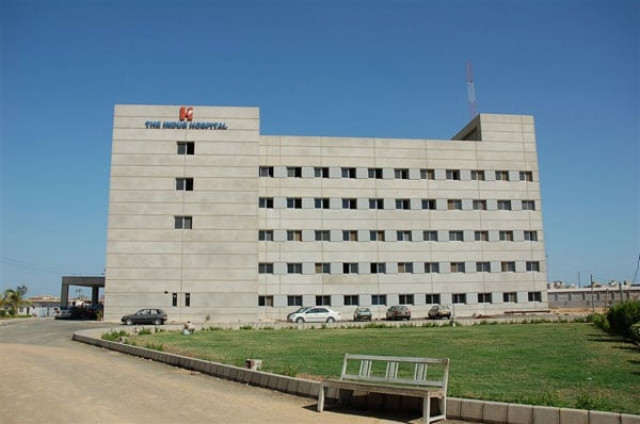New lease of life for 164 hospitals
Govt plans to hand over more public hospitals to its private sector partners by 2020

PHOTO: PARN.ORG
Health department officials believe that the quality of services provided will improve once the government focuses on financing and regulation, absolving itself of operational responsibilities. The director of the department's public-private partnership sector and the official responsible for handing over facilities to the contracting partners, Dr Ahsanullah Khan, told The Express Tribune that 164 facilities have been handed over to four partner organisations so far during the first phase of the contracting project.
He explained that the public-private partnership of health facilities is governed by the Sindh Public Private Partnership Act, 2010, adding that, according to the health sector strategy from 2012 to 2020, public-sector health facilities are being handed over to private contractors. The facilities are located throughout the province, but the main aim of the project is to improve healthcare coverage in 12 of the lowest socio-economic districts of Sindh.

The purpose behind the partnership is to bring the local community and private and public sectors on a single platform in order to ensure the welfare of patients, since this is the only way through which combined management, resources and expertise of all the stakeholders can be brought on a single platform, he claimed.
The first facility was handed over to contractors in 2013 with the approval of the chief minister according to the Sindh Public Procurement Rules Act (SPPRA), he explained. Dr Ahsanullah said the PPP board, whose chairperson is the provincial chief minister and vice-chairperson is the senior finance minister, finalises the decision of handing over the facility.
He added that the performance-based contracting out of the facilities improves the inefficiencies in public-sector healthcare facilities.
Talking about the partners for the first contracting out initiative, he said that out of 164 facilities, 38 facilities in District Malir have been handed over to the Health and Nutrition Development Society. The remaining 126 facilities have been handed over to the Indus Hospital, Integrated Health Services and Medical Emergency Resilience Foundation, while the ambulance service has been contracted out to the Aman Foundation.
According to Dr Ahsanullah, in order to run the facilities, 80% of the funds are provided to the partners by the government while 20% are self-generated. "We regulate, whereas independent auditors and experts monitor [the hospitals' activities] and submit reports after every four months," he explained.
Dr Ahsanullah said the government staff is also given to the partners, as is the authority to hire contractual staff to fill vacant positions. The ownership of property and the buildings remain with the government of Sindh, whereas the administration and management is handed over to the partners.
Dr Ahsanullah said that service delivery in public-sector hospitals has improved three-fold and the number of outpatient departments (OPDs) has also increased in facilities handed over to private partners.
He said the utilisation of public-sector hospitals has also improved from 20% to 80% in rural areas, which has resultantly improved the functioning of district hospitals.
The chief executive officer of Indus Hospital, Dr Abdul Bari Khan, told The Express Tribune that the move by the government to initiate public-private partnership in Sindh has been very welcome at public-sector hospitals since they are facing many management problems.
He said that the district headquarters hospital in Badin, which has been handed over to the Indus Hospital, has improved significantly in providing healthcare facilities under their current administration. "The OPD has improved from 6,000 to 60,000 patients in a month and the doctors are present throughout day and night, which was a very uncommon sight earlier," explained Dr Bari. However, the system of PPP has to be streamlined by the government. He said that it would be a win-win situation for the patients if the government and its private partners work hand in hand.
Other partnerships
The paediatric emergency room at Civil Hospital, Karachi is being operated by the ChildLife Foundation for the past five years following a Memorandum of Understanding (MOU), which was signed with the then health secretary, said ChildLife Foundation CEO Ahson Rabbani.
The emergency room of the National Institute of Child Health was also handed over to the same partner under an MOU signed in 2013 and later, Sindh Government Hospital, Korangi 5 was handed over to them in June, 2016. However, the burns centre, situated in Civil Hospital, Karachi, is being run by Friends of Burns Centre, a patient welfare group, under another MOU. The secretary and minister of the health department were not available for comments.
Published in The Express Tribune, November 16th, 2016.



















COMMENTS
Comments are moderated and generally will be posted if they are on-topic and not abusive.
For more information, please see our Comments FAQ